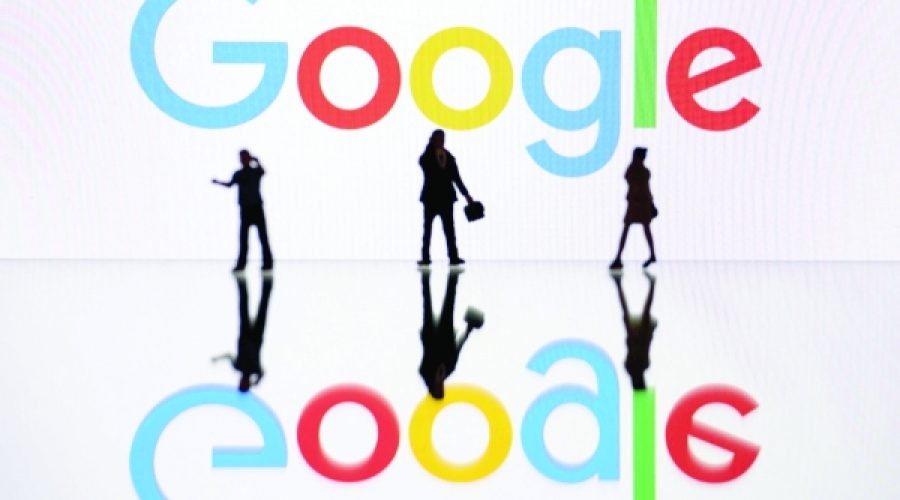حکم گوگل پیام روشنی به شرکتهای بزرگ فناوری میفرستد: چگونه بر رقابت و فرصتهای تجاری در عمان تأثیر میگذارد
مجموعهای از دعاوی ضد انحصار دولتی که شرکتهای بزرگ فناوری ایالات متحده - آمازون، اپل، گوگل و متا - را هدف قرار دادهاند، بازارهای مختلفی را پوشش میدهند و ادعا میکنند که اشکال مختلفی از سوء رفتار انحصاری وجود دارد. نتایج این پروندهها، چشمانداز رقابتی را در اقتصاد دیجیتال در حال تحول شکل خواهد داد، جایی که اینترنت، دادهها و هوش مصنوعی به طور فزایندهای بر بازارها و رفتار شرکتها تأثیر میگذارند.
روز سهشنبه، یک قاضی فدرال حکم مهمی در مورد انحصار گوگل در جستجوی آنلاین صادر کرد. این حکم محدودیتهایی را الزامی میکند، اما شامل انحلال شرکت یا اعمال تغییرات اساسی در شیوههای تجاری آن نمیشود.
دیوید یوفی، استاد دانشکده بازرگانی هاروارد، این حکم را «تسکینی» برای شرکتهای بزرگ فناوری توصیف کرد.
حکم قاضی آمیت پی. مهتا، که در دادگاه منطقهای ایالات متحده برای ناحیه کلمبیا صادر شد، اولین حکم مهم در زمینه راهحلهای ضد انحصار در دوران مدرن اینترنت است. این حکم نشان میدهد که دادگاهها پس از تلاشهای تشدید شده در دولتهای ترامپ و بایدن برای مهار قدرت رو به رشد شرکتهای فناوری غالب، چگونه ممکن است به مقررات ضد انحصار نزدیک شوند.
حکم مهتا، گوگل را ملزم میکند که دادههای جستجوی خاصی را با رقبا به اشتراک بگذارد و برخی از پرداختهای خود را که جایگاه برتر موتور جستجوی آن را در مرورگرهای وب و تلفنهای هوشمند تضمین میکند، محدود میکند. با این حال، درخواستهای دولت از گوگل برای فروش مرورگر کروم و به اشتراک گذاشتن مجموعه دادههای گستردهتر را رد میکند.
این حکم نشاندهندهی احتیاط قضایی در مورد مداخلهی بیش از حد عمیق در بازارهای پویا و پیشرفته است. ویلیام کواچیچ، استاد حقوق در دانشگاه جورج واشنگتن و رئیس سابق کمیسیون تجارت فدرال، این تصمیم را «محتاطانه» خواند. مهتا پیشرفتهای سریع در هوش مصنوعی، که در حال حاضر نحوهی جستجوی اطلاعات توسط مردم را متحول میکند، را عاملی در خویشتنداری خود ذکر کرد. مهتا خاطرنشان کرد، برخلاف پروندههای معمول ضد انحصار که حقایق گذشته را بررسی میکنند، این پرونده نیاز به بررسی آیندهای نامشخص دارد - «دقیقاً نقطهی قوت یک قاضی نیست».
گوگل از الزامات اشتراکگذاری دادهها انتقاد کرد و نگرانیهای خود را در مورد حریم خصوصی کاربران ابراز داشت، اما از این شناخت که هوش مصنوعی چشمانداز رقابتی را تغییر داده است، تمجید کرد. این شرکت بار دیگر دیدگاه خود را مبنی بر اینکه رقابت همچنان شدید است، تکرار کرد. گوگل قصد دارد به حکم قبلی اعتراض کند، که احتمالاً منجر به یک نبرد حقوقی طولانی مدت میشود که احتمالاً به دیوان عالی کشور میرسد.
اگر حکم مهتا در مرحله تجدیدنظر باقی بماند، که کارشناسان آن را محتمل میدانند، میتواند بر نحوه رسیدگی سایر قضات به پروندههای انحصار تأثیر بگذارد. انتظار میرود در ماههای آینده، دادگاهها در مورد پروندههای مرتبط با تسلط گوگل بر نرمافزارهای تبلیغاتی، ادعای سرکوب رقبای نوظهور توسط متا و دعاوی دولتی علیه آمازون و اپل حکم صادر کنند.
تصمیم مهتا، یادآور پروندهی مهم ضدانحصار علیه مایکروسافت در سال ۲۰۰۱ است. آن پرونده که مایکروسافت را به طور غیرقانونی در نرمافزارهای مرورگر کامپیوتر و اینترنت محکوم کرد، با توافقی پایان یافت که قراردادهای انحصاری را ممنوع میکرد اما شرکت را منحل نمیکرد. به همین ترتیب، گوگل اکنون باید قراردادهای «انحصاری» را که به شرکتهایی مانند اپل و موزیلا برای قرار دادن گوگل به عنوان موتور جستجوی پیشفرض پرداخت میکند، پایان دهد، اگرچه ممکن است برخی از پرداختها ادامه یابد. برخی از تحلیلگران حقوقی، با توجه به انحصار عملی که موتورهای جستجوی پیشفرض دارند، این رویکرد را تا حدودی گیجکننده دانستند.
به نظر میرسد این حکم با نگاهی به تجدیدنظرهای احتمالی تدوین شده است. تصمیمات اخیر دیوان عالی کشور در مورد اجرای قوانین ضد انحصار، موضعی محافظهکارانه اتخاذ کردهاند که نشاندهنده تردید در مورد مداخلات تهاجمی است. به عنوان مثال، حکم متفقالقول دیوان عالی در سال ۲۰۲۱ علیه محدودیتهای NCAA در مورد غرامت ورزشکاران، بر فروتنی قضایی تأکید کرد و نسبت به قضاتی که به عنوان «برنامهریزان مرکزی» عمل میکنند، هشدار داد.
قاضی مهتا در طول حکم ۲۲۳ صفحهای خود، این فلسفه را تکرار کرد و اظهار داشت: «دادگاهها باید با فروتنی و تواضع کافی به وظیفه تدوین راهحلها بپردازند.»
اگرچه توافقهایی مشابه توافق مایکروسافت همچنان امکانپذیر است، اما پرونده جستجوی گوگل احتمالاً به دیوان عالی کشور خواهد رسید و فرصتی برای شفافسازی قوانین ضدانحصار برای شرکتهای فناوری غالب در عصر دیجیتال فراهم میکند.
کارشناسان ضد انحصار، با توجه به دسترسی گسترده گوگل و اندازه بازار، این پرونده را محوری میدانند. ویلیام کواچیچ پیشبینی کرد: «فکر میکنم این پرونده به سرانجام خواهد رسید.»
— نیویورک تایمز
تحلیل ویژه از عمانت | بازار عمان را کشف کنید
حکم اخیر ایالات متحده علیه انحصار گوگل، نکتهای را برجسته میکند رویکرد نظارتی محتاطانه در قبال سلطه شرکتهای بزرگ فناوری، نشان میدهد که شرکتها بدون انحلال یا اصلاحات اساسی با محدودیت مواجه خواهند شد. برای کسبوکارها در عمان، این موضوع اهمیت ... را برجسته میکند. سازگاری با مقررات در حال تحول بازار دیجیتال و پذیرش نوآوری مبتنی بر هوش مصنوعی برای حفظ رقابت. سرمایهگذاران و کارآفرینان هوشمند باید فرصتهای موجود در خدمات دیجیتال نوظهور و اکوسیستمهای اشتراکگذاری دادهها را در نظر بگیرند، ضمن اینکه برای [موارد زیر] نیز آماده شوند: تغییرات نظارتی تدریجی اما تأثیرگذار در بازارهای جهانی فناوری.



